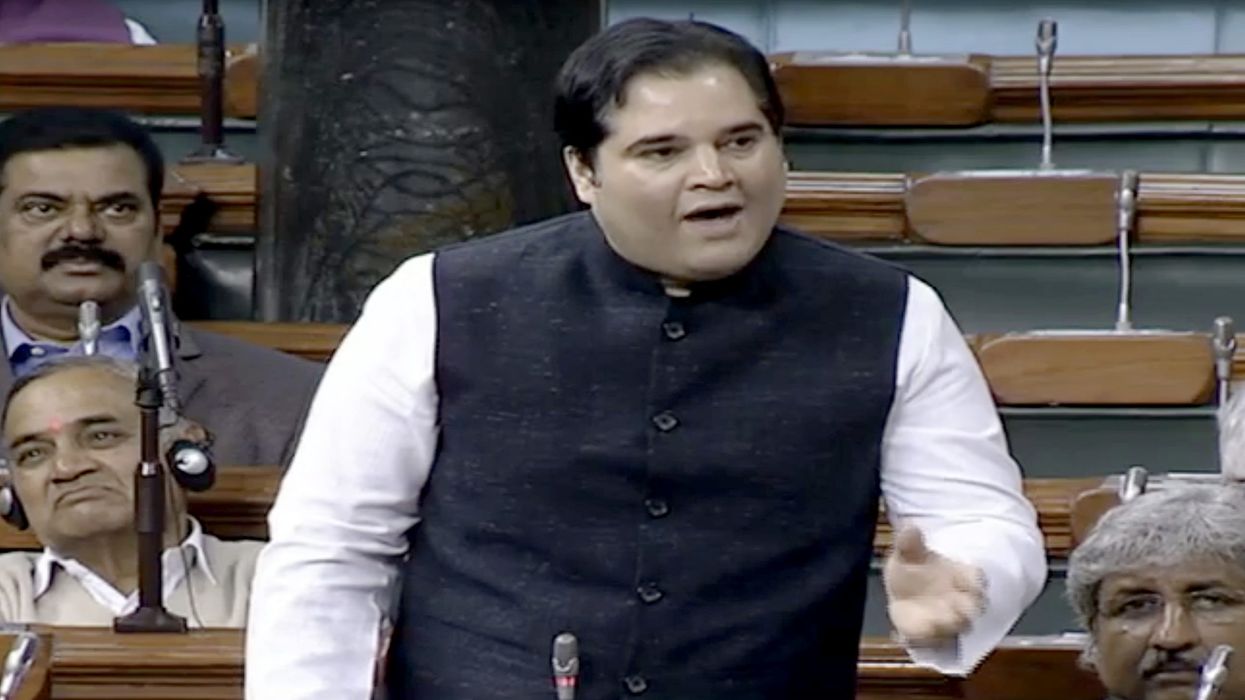Indian MP Varun Gandhi, a member of prime minister Narendra Modi’s ruling Bharatiya Janata Party (BJP), has reportedly turned down an invitation by the Oxford Union to speak at a debate on “whether India is on the right path” under Modi.
Varun is the grandson of the late former Indian prime minister Indira Gandhi, who belonged to the Congress, which is now in opposition. His cousin, Rahul, was in London last week and spoke at Cambridge University, where he criticised the failure of “democratic structures” in India. His comments sparked uproar in India and have led to stalled parliamentary proceedings this week.
Varun is reported to have said speaking at the Oxford debate will be a "dishonourable act" since he saw no merit or integrity in voicing domestic challenges at an international forum.
A source said Varun, who has been critical of the BJP-led government's policies, took the decision as the prestigious debating society wanted him to speak against the motion that "This House Believes Modi's India Is On The Right Path".
The invitation for the debate, scheduled between April and June, was extended to the BJP MP on behalf of the union's president, Matthew Dick.
According to the Oxford union's invitation to Varun, India under Modi has risen to greater prominence on the global stage, with many equating his policy agendas to robust economic growth, tackling corruption, and putting "India first".
On the other hand, the prime minister’s administration has been criticised for mishandling a growing discontent within the agricultural sector, "instigating" conflict between religious groups, and failing to revitalise the health and education sectors, the invitation is said to have added.
"Against the backdrop of ever-strong popularity among voters, it is imperative to discuss whether the BJP's direction under Modi has been more polarising than unifying. The question then becomes: what (or who) is the right path for India as it forges ahead into the future?" the invitation read.
Declining the invitation, Varun said the topic in question was one with a "predefined conclusion" and added that he had the opportunity to discuss such topics in India, where he can criticise government policies in public as well as in parliament.
However, such criticism must be made within India to policy-makers and raising them outside the country would be inimical to its interest and a "dishonourable act", Varun is reported to have said.
"As an elected representative, I see it as my job to strengthen our system by studying and evaluating policy initiatives and offering feedback; by taking up issues of national interest and suggesting possible solutions; by engaging with the public to raise and showcase legitimate concerns. It is a priority to participate in the national debate both within parliament and through other fora in a constant and constructive manner," Varun said.
He added, "However, such comment must be offered within India to Indian policy-makers. I see no merit or integrity in vocalising internal challenges in an international forum."
The MP represents Pilibhit in northern India’s Uttar Pradesh state in the Lok Sabha, India’s lower house of parliament.
Varun said India was “on the right path for development and inclusiveness, laid out and pursued by governments of varied political affiliations over the past seven decades with a push for robust economic growth, revitalising agriculture, education and healthcare, and putting India's interests first”.
Every vibrant democracy offers its citizens the freedom and opportunity to engage with issues, Varun added.
Politicians like him may have their differences on individual policies at the central and state levels; however, they are united on the path for India's rise, he said.
A spokesperson for Oxford Union declined comment over the weekly debates planned between April 27 and June 15, saying, “We have nothing to say on this”.
(PTI)





